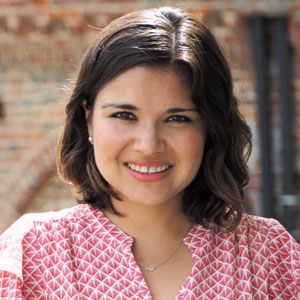Democratic Republic of Congo (DRC) is a vast country about two thirds the size of Europe. More than half of its territory is forested, much of it inhabited by local and Indigenous communities whose tenure rights are not properly recognized by the state. Persistent land issues are a cause of conflict and violence in the country, and any inclusive conservation initiative can only succeed if they are addressed.
Acknowledging these issues, since 2012, DRC has been engaged in a land reform process to replace the land law currently in force, which dates from 1973. Eight years and many consultations later, however, there is still no consensus on key issues, and the proposed national land policy remains an unvalidated draft.
At the heart of this debate is the lack of recognition of customary tenure, according to Marie-Bernard Dhedya, a 35-year-old Congolese lawyer and professor at the University of Kisangani (UNIKIS). Dhedya is the founder the “Land and Customary Law Research Lab” (LRDFC), DCR’s first think-tank specialized in this area.
The 1973 land law states that all land in DRC is property of the state, which it might then grant to private parties as a concession under formal law. However, in practice, small holdings, village and communal lands tend to be governed informally by customary law.
“The situation on the ground is that we have two parallel systems that often conflict, and in which the land rights of local communities and Indigenous people are not always guaranteed by the state,” said Dhedya.
This is why, according to Dhedya, DRC needs a legal framework that formally incorporates customary tenure and definitively addresses legal pluralism.
“Land reform must allow for local and indigenous communities to obtain titles through accessible procedures, and to lawfully participate in forest management decision-making,” he said.
Recognition of traditional knowledge
Land law is not the only field in DRC where so-called modern systems established during the colonial era are favored over traditional systems and knowledge, Dhedya said.
“Lack of recognition of customary tenure is part of a larger phenomenon of lack of appreciation of Indigenous and local communities and their contributions to conservation,” he added.
In an effort to change this tendency, the LRDFC organizes activities with students to promote academic interest in the field, including traditional knowledge in science, and ensuring that the law protects the intellectual property of the local and Indigenous communities who hold that knowledge.
“Our approach is to study customary systems holistically as an alternative for better forest, land, and natural resource management,” Dhedya added.
Leading a new generation
Dhedya has studied land law since 2012, when he received support from the Center for International Forestry Research (CIFOR) and the European Union to study a for a master’s degree and subsequently a Ph.D. at UNIKIS as part of CIFOR’s REFORCO project, which offers support for DRC’s national policy on forest conservation and management, and FCCC (Forests and climate change in the Congo) projects. His doctoral research was supervised by experts from the University of Cambridge and CIFOR and focused on land conflicts between local communities and logging companies in forest concessions.
“Through this research I realized that there were very few available studies on traditional systems of land ownership in the DRC,” said Dhedya. “There were, and there are still, critical gaps to fully understand how to recognize these systems and make them work in current circumstances.”
Now, as a professor Dhedya is supporting a new generation of students specializing in customary law. Ten youth under 30 years of age work at LRDFC, conducting innovative research that can help secure the rights of local and Indigenous communities in DRC.
We want you to share Forests News content, which is licensed under Creative Commons Attribution-NonCommercial-ShareAlike 4.0 International (CC BY-NC-SA 4.0). This means you are free to redistribute our material for non-commercial purposes. All we ask is that you give Forests News appropriate credit and link to the original Forests News content, indicate if changes were made, and distribute your contributions under the same Creative Commons license. You must notify Forests News if you repost, reprint or reuse our materials by contacting forestsnews@cifor-icraf.org.

























